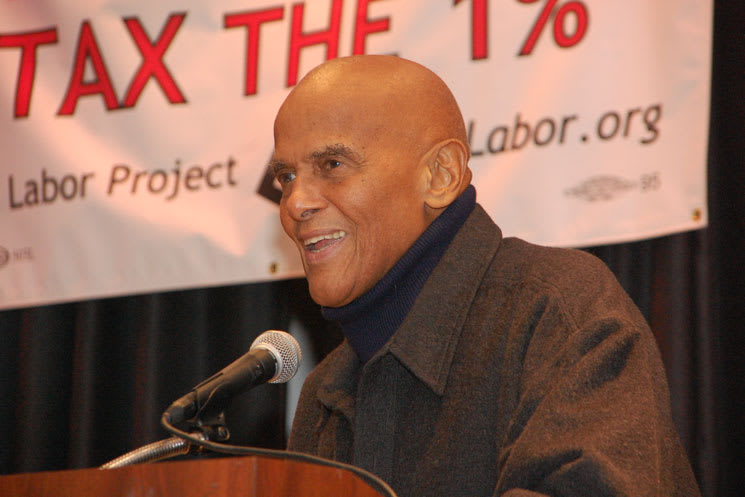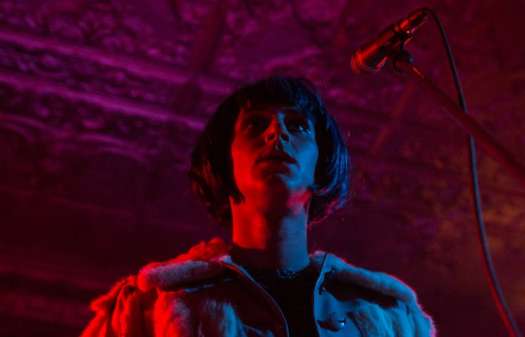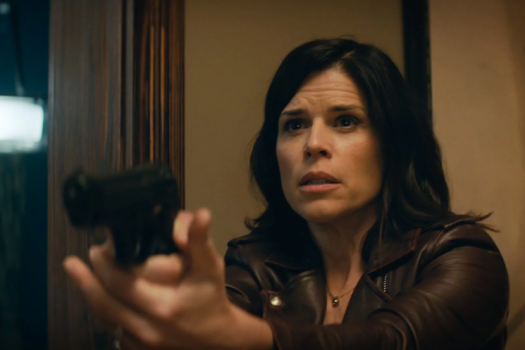Harry Belafonte — the renowned singer, actor and resolute social activist recognized for his achievements in both politics and popular culture — has died. Longtime spokesperson Ken Sunshine confirmed to The New York Times that Belafonte died Tuesday at his home on the Upper West Side of Manhattan of congestive heart failure. He was 96.
Though he was dubbed the "King of Calypso" in the United States upon breaking social barriers and achieving celebrity as a musician, Belafonte's first artistic love was acting. Born in Harlem, NY, to Jamaican-born parents, Belafonte dropped out of high school in Manhattan and enlisted in the Navy, returning to the city after being discharged from service. His first encounter with theatre came through working as a janitor's assistant.
"The job could not be considered artistic, but I did the job artistically," he shared with NPR's Morning Edition in 2011, recalling, "I loved mopping the halls, and I tried to look a little like Charlie Chaplin on skates as I just rushed up and down the hallway with a wet mop, trying to take the boredom out of all day long mopping halls and hauling garbage and stoking furnaces. But it paid off, because one day I did a repair at a tenant's apartment and they gave me, as a gratuity, two tickets to a theatre. So I went to this place, the American Negro Theater, and it was there that the universe opened for me."
Speaking with NPR, Belafonte recalled how the evening "overwhelmed" him, explaining, "what I had discovered in the theatre was power: power to influence, power to know of others and know of other things." Through working as a stagehand, he would meet and begin a lifelong friendship with the late Sidney Poitier. Belafonte remembered how he and Poitier used to sneak into theatres with a single ticket: "You kept the stub. You walked in and one of us saw the first half. We'd give each other an update about what we just saw, and the lucky one got to see the second half. It was called 'sharing the burden and the joy.'"
A singing role in a production led Belafonte to take up performing in New York nightclubs — with some early performances featuring a backing band that included Charlie Parker, Miles Davis, Lester Young and Max Roach. Signing a recording contract with RCA Victor, he would release his breakthrough album Calypso in 1956. On the strength of his renditions of traditional Jamaican folk (mento) songs like "Day-O (The Banana Boat Song)," and "Jamaica Farewell," it became the first album by a solo artist to sell over one million copies. In 2018, the album was selected by the US Library of Congress for preservation in the National Recording Registry for being "culturally, historically, or artistically significant."
Outside of his sizeable catalogue of albums, Belafonte would find success on the screen, starring in films including Carmen Jones (1954), Island in the Sun (1957) and Odds Against Tomorrow (1959). He was offered the role of Porgy in director Otto Preminger's 1959 musical drama Porgy and Bess, only to turn it down as he found "racially demeaning," as he wrote in his 2011 book My Song: A Memoir of Art, Race and Defiance. His friend Poitier would take the role instead. Belafonte's final film role came in Spike Lee's 2018 Oscar-winning film BlacKkKlansman.
In the 1950s, Belafonte was involved in the civil rights movement, becoming a close friend and supporter of Rev. Dr. Martin Luther King Jr. Speaking with NPR in 2011, he recalled a formative moment from childhood that shaped his beliefs and inspired his future actions: "The severity of poverty kept us all deeply preoccupied with our survival. And nobody had survival skills and greater cunning than did my mother. She was tenacious about her dignity not being crushed. And one day she said to me — she was talking about coming back from the day when she couldn't find work — fighting back tears, she said, 'Don't ever let injustice go by unchallenged.' And that really became a deep part of my life DNA. A lot of people say to me, 'When as an artist did you decide to become an activist?' I say to them, 'I was long an activist before I became an artist.'"
Belafonte opposed South Africa's apartheid, and was instrumental to the organization of United Support of Artists for Africa, the supergroup that recorded 1985's "We Are the World." From 1987 until his death, he was an advocate for children's rights as a UNICEF Goodwill Ambassador. A vocal critic of US foreign policy, Belafonte's opposition to President George W. Bush (whom he once called "the greatest terrorist in the world"), members of his administration and the Iraq War have been widely reported. On the day of the 2016 US presidential election, Belafonte urged the public not to vote for the "feckless and immature" Donald J. Trump in a New York Times opinion piece, following his endorsement of Senator Bernie Sanders for the Democratic primary elections.
Belafonte's honours include the Kennedy Center Honors received in 1989, the National Medal of Arts in 1994, and a Rock and Roll Hall of Fame induction which came last year in the Early Influence category, making him the oldest living person to have received the honour at the time. He is among a select group of artists to hold EGOT designation, meaning he has won all four major American art awards: Emmy, Grammy, Oscar and Tony.
Though he was dubbed the "King of Calypso" in the United States upon breaking social barriers and achieving celebrity as a musician, Belafonte's first artistic love was acting. Born in Harlem, NY, to Jamaican-born parents, Belafonte dropped out of high school in Manhattan and enlisted in the Navy, returning to the city after being discharged from service. His first encounter with theatre came through working as a janitor's assistant.
"The job could not be considered artistic, but I did the job artistically," he shared with NPR's Morning Edition in 2011, recalling, "I loved mopping the halls, and I tried to look a little like Charlie Chaplin on skates as I just rushed up and down the hallway with a wet mop, trying to take the boredom out of all day long mopping halls and hauling garbage and stoking furnaces. But it paid off, because one day I did a repair at a tenant's apartment and they gave me, as a gratuity, two tickets to a theatre. So I went to this place, the American Negro Theater, and it was there that the universe opened for me."
Speaking with NPR, Belafonte recalled how the evening "overwhelmed" him, explaining, "what I had discovered in the theatre was power: power to influence, power to know of others and know of other things." Through working as a stagehand, he would meet and begin a lifelong friendship with the late Sidney Poitier. Belafonte remembered how he and Poitier used to sneak into theatres with a single ticket: "You kept the stub. You walked in and one of us saw the first half. We'd give each other an update about what we just saw, and the lucky one got to see the second half. It was called 'sharing the burden and the joy.'"
A singing role in a production led Belafonte to take up performing in New York nightclubs — with some early performances featuring a backing band that included Charlie Parker, Miles Davis, Lester Young and Max Roach. Signing a recording contract with RCA Victor, he would release his breakthrough album Calypso in 1956. On the strength of his renditions of traditional Jamaican folk (mento) songs like "Day-O (The Banana Boat Song)," and "Jamaica Farewell," it became the first album by a solo artist to sell over one million copies. In 2018, the album was selected by the US Library of Congress for preservation in the National Recording Registry for being "culturally, historically, or artistically significant."
Outside of his sizeable catalogue of albums, Belafonte would find success on the screen, starring in films including Carmen Jones (1954), Island in the Sun (1957) and Odds Against Tomorrow (1959). He was offered the role of Porgy in director Otto Preminger's 1959 musical drama Porgy and Bess, only to turn it down as he found "racially demeaning," as he wrote in his 2011 book My Song: A Memoir of Art, Race and Defiance. His friend Poitier would take the role instead. Belafonte's final film role came in Spike Lee's 2018 Oscar-winning film BlacKkKlansman.
In the 1950s, Belafonte was involved in the civil rights movement, becoming a close friend and supporter of Rev. Dr. Martin Luther King Jr. Speaking with NPR in 2011, he recalled a formative moment from childhood that shaped his beliefs and inspired his future actions: "The severity of poverty kept us all deeply preoccupied with our survival. And nobody had survival skills and greater cunning than did my mother. She was tenacious about her dignity not being crushed. And one day she said to me — she was talking about coming back from the day when she couldn't find work — fighting back tears, she said, 'Don't ever let injustice go by unchallenged.' And that really became a deep part of my life DNA. A lot of people say to me, 'When as an artist did you decide to become an activist?' I say to them, 'I was long an activist before I became an artist.'"
Belafonte opposed South Africa's apartheid, and was instrumental to the organization of United Support of Artists for Africa, the supergroup that recorded 1985's "We Are the World." From 1987 until his death, he was an advocate for children's rights as a UNICEF Goodwill Ambassador. A vocal critic of US foreign policy, Belafonte's opposition to President George W. Bush (whom he once called "the greatest terrorist in the world"), members of his administration and the Iraq War have been widely reported. On the day of the 2016 US presidential election, Belafonte urged the public not to vote for the "feckless and immature" Donald J. Trump in a New York Times opinion piece, following his endorsement of Senator Bernie Sanders for the Democratic primary elections.
Belafonte's honours include the Kennedy Center Honors received in 1989, the National Medal of Arts in 1994, and a Rock and Roll Hall of Fame induction which came last year in the Early Influence category, making him the oldest living person to have received the honour at the time. He is among a select group of artists to hold EGOT designation, meaning he has won all four major American art awards: Emmy, Grammy, Oscar and Tony.




